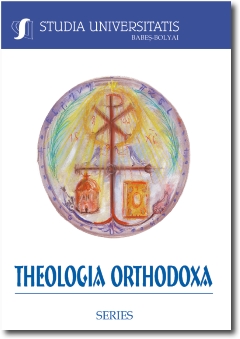LANGUAGE, PHILOSOPHY AND POLITICS IN THE DEVELOPMENT OF THE FILIOQUE CLAUSE
LANGUAGE, PHILOSOPHY AND POLITICS IN THE DEVELOPMENT OF THE FILIOQUE CLAUSE
Author(s): Ştefăniţă BarbuSubject(s): Christian Theology and Religion
Published by: Studia Universitatis Babes-Bolyai
Keywords: filioque; Augustine; philosophy; politics; Charlemagne.
Summary/Abstract: After Augustine, the theology of the filioque became normative within the borders of the Latin-speaking world. It was used in different creeds and became part of Latin theology. All this happened on a background of continuing estrangement, both political and religious, between Eastern and Western Christianity. This estrangement was clearly evident during Charlemagne’s reign. Nonetheless, the Latins held the belief that filioque was a teaching of the Universal Church. For centuries, all these cultural and political aspects of the filioque clause have been neglected and thus a comprehensive understanding of the issue at stake was not fully reached. For this reason, we argue that the filioque clause should not be considered primarily as a Church-dividing issue but rather as a legitimate development, and therefore should be treated as a legitimate diversity. One should not forget that, although during Photius’s time dissension between East and West on the topic of filioque reached its apex, the two traditions (Greek and Latin) nevertheless preserved Eucharistic communion.
Journal: Studia Universitatis Babes-Bolyai - Theologia Orthodoxa
- Issue Year: LV/2010
- Issue No: 1
- Page Range: 257-271
- Page Count: 15
- Language: English

